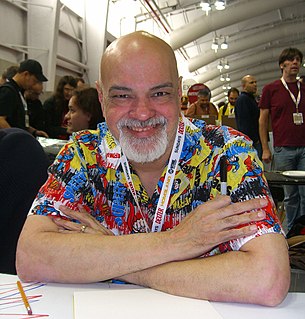A Quote by Alison Bechdel
I'm pretty illiterate when it comes to comics history.
Quote Topics
Related Quotes
There are a lot of good comics, no doubt, but as far as the quality of the comics goes, I think what you have is a bunch of situational comics - there are black comics that work only black crowds, gay comics that do only gay crowds, and southern comics that only work down South, and so on with Asian, Latino, Indian, midgets, etc. The previous generation's comics were better because they had to make everybody laugh.
I wasn't sure what I wanted to do with my life. I always wanted to pursue either music or comics, so when the opportunity came from comics publisher Fantagraphics for my brothers Jaime and Mario and I to make a comic book together, we jumped at the chance: "Let's just do it and see what happens." Really, we weren't sure where we were going to go with it. We thought our work was good enough to be out there, but we didn't know that the response was going to be pretty good, pretty quick.
The lovely thing about writing comics for so many years is that comics is a medium that is mistaken for a genre. It's not that there are not genres within comics, but because comics tend to be regarded as a genre in itself, content becomes secondary; as long as I was doing a comic, people would pick it up.


































